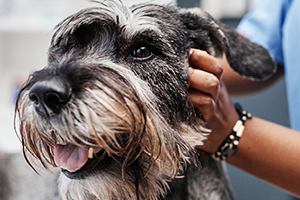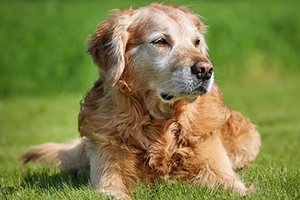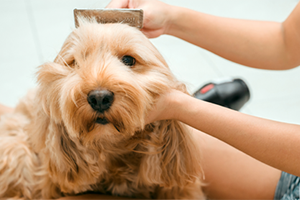Is your Labrador prone to skin allergies?

Quick Links
Why are Labradors prone to allergies?
Are allergies in Labradors hereditary?
It’s thought that skin allergies in dogs can be inherited, although we don’t yet know exactly which genes are involved. If you’re choosing a Labrador puppy, it’s a good idea to ask the breeder whether either parent suffers from any kind of allergies. Responsible breeders won’t usually choose to breed dogs that already exhibit sensitivities to allergens.
Parent dogs having allergies can be an indicator that their puppies may also develop allergies. Nevertheless, there’s no guarantee that your puppy won’t develop issues in future even if their parents are unaffected by allergies. Clinical signs of skin allergies usually onset between one and three years of age.
Common skin allergies in Labradors
Labrador Retrievers are affected by the same types of skin allergies as other breeds, including:
- Airborne allergens. These can include pollen, mould and house dust mites.
- Fleas. The saliva from fleas can cause flea allergy dermatitis.
- Contact dermatitis. External allergens can come from things like grass, fabrics or cleaning sprays.
- Food allergies. Certain substances – including eggs, soya, chicken and wheat – can trigger food allergies in dogs.
How to spot the signs of a canine skin allergy
The symptoms of skin allergies in Labradors will be the same as for any other dog breed. They can include itchy or reddened skin; skin or ear infections; thickened patches of skin or hair loss.
If you spot any signs of redness, discomfort or excessive scratching in your Lab, it’s important to seek veterinary advice. Allergies can cause discomfort and lead to secondary skin infections, especially in the ears, so it’s always a good idea to get to the bottom of the problem and treat it promptly.
Your vet will want to narrow down what may be triggering your Labrador’s allergies. Depending on their individual triggers, the recommended treatment may include immunotherapy or other medications. Lifestyle changes could include bathing with medicated shampoos, eliminating certain foods from your dog’s diet, or cutting down exposure to allergens.
Management of skin allergies in Labradors is generally successful, although they can never be cured. But, with any luck, your dog should soon be scratching less and feeling more comfortable! And the good news is, if your dog is already insured with Petplan, some or all of their treatment may be covered.
Petplan is a trading name of Pet Plan Limited (Registered in England No. 1282939) and Allianz Insurance plc (Registered in England No. 84638), Registered office: 57 Ladymead, Guildford, Surrey GU1 1DB.
Pet Plan Limited is authorised and regulated by the Financial Conduct Authority. Financial Services Register No. 311969. Allianz Insurance plc is authorised by the Prudential Regulation Authority and regulated by the Financial Conduct Authority and the Prudential Regulation Authority. Financial Services Register No. 121849. Pet Plan Limited is a subsidiary of Allianz Insurance plc.
















